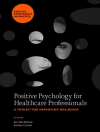The unexpected loss of a client can be a lonely and isolating experience for therapists. While family and friends can ritually mourn the deceased, the nature of the therapeutic relationship prohibits therapists from engaging in such activities. Practitioners can only share memories of a client in circumscribed ways, while respecting the patient’s confidentiality. Therefore, they may find it difficult to discuss the things that made the therapeutic relationship meaningful. Similarly, when a therapist loses someone in their private lives, they are expected to isolate themselves from grief, since allowing one’s personal life to enter the working relationship can interfere with a client’s self-discovery and healing.
For therapists caught between their grief and the empathy they provide for their clients, this collection explores the complexity of bereavement within the practice setting. It also examines the professional and personal ramifications of death and loss for the practicing clinician. Featuring original essays from longstanding practitioners, the collection demonstrates the universal experience of bereavement while outlining a theoretical framework for the position of the bereft therapist. Essays cover the unexpected death of clients and patient suicide, personal loss in a therapist’s life, the grief of clients who lose a therapist, disastrous loss within a community, and the grief resulting from professional losses and disruptions. The first of its kind, this volume gives voice to long-suppressed thoughts and emotions, enabling psychologists, psychiatrists, counselors, and other mental health specialists to achieve the connection and healing they bring to their own work.
Inhoudsopgave
Contents
Acknowledgments
List of Contributors
‘Another Kind of Sorrow, ‘ a poem by Judy Bolz
Preface
Introduction
Part I. The Therapist’s Experience of Loss
1. From the Faraway Nearby: Perspectives on the Integration of Loss, by Kerry L. Malawista and Linda Kanefield
2. Experiences of Loss at the End of Analysis: The Analyst’s Response to Termination, by Judith Viorst
3. Missing Myself, by Sandra Buechler
Part II. When a Patient Dies
4. The Hand of Fate: On Mourning the Death of a Patient, by Anne J. Adelman
5. Little Boy Lost, by Arlene Kramer Richards
6. When a Patient Dies: Reflections on the Death of Three Patients, by Sybil Houlding
7. When What We Have to Offer Isn’t Enough: Suicide in Clinical Practice, by Catherine L. Anderson
Part III. At the Crossroads of the Therapist’s Personal and Professional Worlds
8. When the Frame Shifts: A Multilayered Perspective on Illness in the Therapist, by Jenifer Nields
9. The Loss of an Institution: Mourning Chestnut Lodge, by Richard M. Waugaman
10. The Death of the Analyst, the Death of the Analytic Community, and Bad Conduct, by Robert M. Galatzer-Levy
11. The Analyst’s Death—Apprehension yet not Comprehension, by Barbara Stimmel
Part IV. When Disaster Strikes a Community
12. Broken Promises, Shattered Dreams, Wordless Endings, by Sylvia J. Schneller
13. What the Living Did: September 11 and Its Aftermath, by Billie A. Pivnick
14. The Loss of Normal: Ten Years as a U.S. Navy Physician Since 9/11, by Russell B. Carr
15. Time, by Robert Winer
Conclusion
‘The Five Stages of Grief, ‘ a poem by Linda Pastan
Index
Over de auteur
Anne J. Adelman is a clinical psychologist and psychoanalyst with the Contemporary Freudian Society. She is a faculty member of the New Directions Writing Program and maintains a private practice in Chevy Chase, Maryland. With Kerry L. Malawista and Catherine L. Anderson, she is the author of Wearing My Tutu to Analysis and Other Stories: Learning Psychodynamic Concepts from Life.Kerry L. Malawista is a training/supervising analyst with the Contemporary Freudian Society. She is co-chair of the New Directions Writing Program and is in private practice in Potomac, Maryland, and Mc Lean, Virginia. With Anne J. Adelman and Catherine L. Anderson, she is the author of Wearing My Tutu to Analysis and Other Stories: Learning Psychodynamic Concepts from Life.












